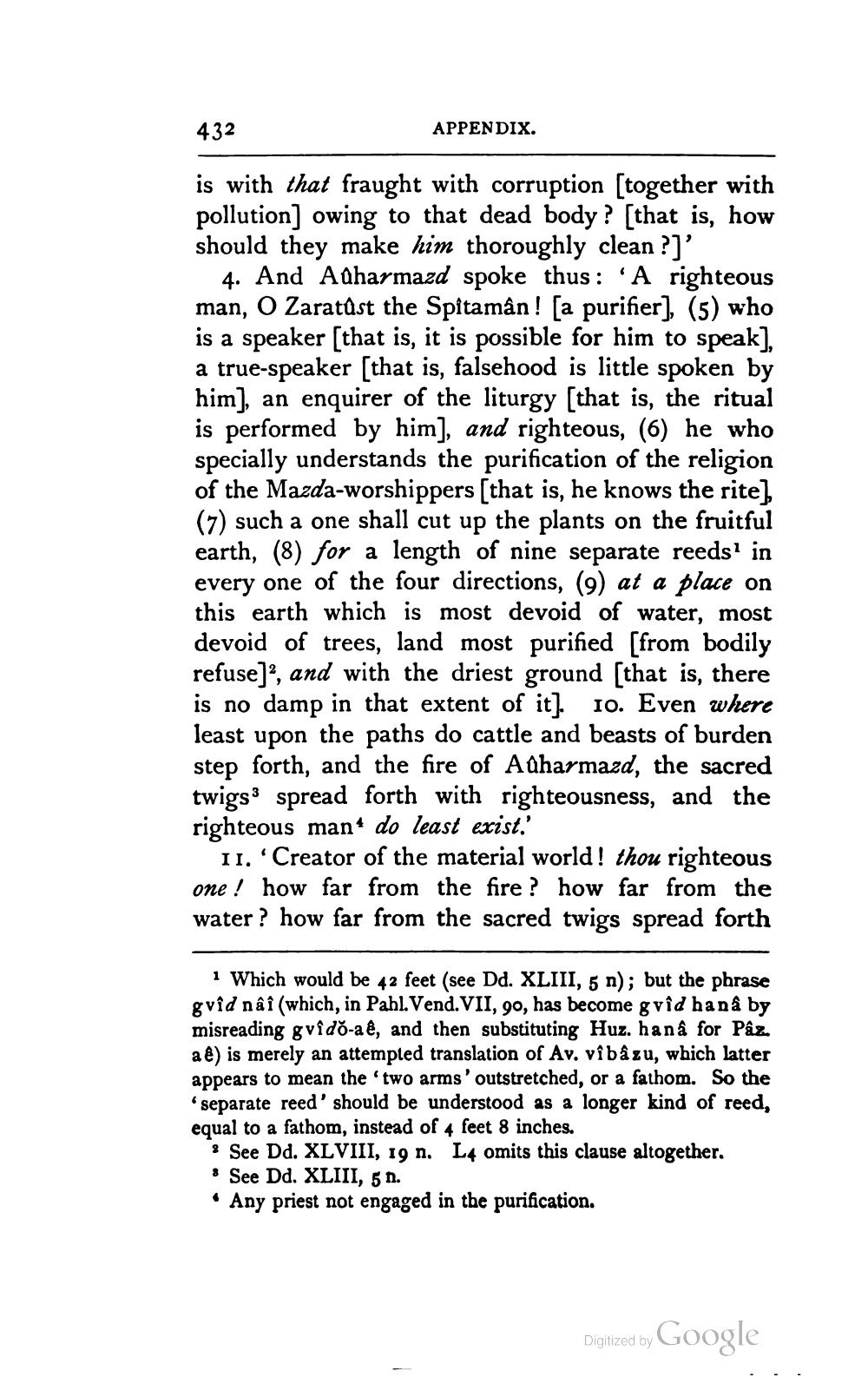________________
432
APPENDIX.
is with that fraught with corruption [together with pollution] owing to that dead body? (that is, how should they make him thoroughly clean ?]'
4. And Adharmazd spoke thus : 'A righteous man, O Zaratūst the Spitamân! [a purifier], (5) who is a speaker (that is, it is possible for him to speak], a true-speaker (that is, falsehood is little spoken by him], an enquirer of the liturgy (that is, the ritual is performed by him], and righteous, (6) he who specially understands the purification of the religion of the Mazda-worshippers (that is, he knows the rite] (7) such a one shall cut up the plants on the fruitful earth, (8) for a length of nine separate reeds in every one of the four directions, (9) at a place on this earth which is most devoid of water, most devoid of trees, land most purified [from bodily refuse]”, and with the driest ground (that is, there is no damp in that extent of it]. 10. Even where least upon the paths do cattle and beasts of burden step forth, and the fire of Adharmazd, the sacred twigs spread forth with righteousness, and the righteous man“ do least exist.'
11. Creator of the material world! thou righteous one! how far from the fire ? how far from the water ? how far from the sacred twigs spread forth
1 Which would be 42 feet (see Dd. XLIII, 5 n); but the phrase gvîd nâî (which, in Pahl.Vend.VII, 90, has become gvid hana by misreading gvido-a e, and then substituting Huz. hana for Pâz. a l) is merely an attempted translation of Av. vîbâ zu, which latter appears to mean the 'two arms' outstretched, or a fathom. So the
separate reed' should be understood as a longer kind of reed, equal to a fathom, instead of 4 feet 8 inches.
See Dd. XLVIII, 19 n. L4 omits this clause altogether. • See Dd. XLIII, 5 n. • Any priest not engaged in the purification.
Digitized by Google




